Action on Salt: salt content of non-meat alternatives is "excessive"
24 Oct 2018The UK’s Action on Salt pressure group has exposed what it claims are excessive amounts of salt in ‘healthy’ processed meat alternatives and demand urgent action from Public Health England.

The UK’s Action on Salt pressure group has exposed what it claims are excessive amounts of salt in ‘healthy’ processed meat alternatives and demanded urgent action from Public Health England.
It says that 28% of all products surveyed are higher in salt than their maximum salt targets - due to be met by 31st December 2017, and that meat free burgers contain on average more salt than meat burgers (0.75g/serve v 0.89g/serve). 20% of products are said to have have no front of pack colour-coded labelling.This finding, it claims, reaffirms how ineffective the voluntary salt targets are due to complete lack of monitoring and guidance from Public Health England.Of the 157 supermarket meat alternative products surveyed, the highest average salt content per 100g was found in meat free bacon (2.03g/100g) and meat free sliced meat (1.56g/100g). Per portion, on average vegetarian kievs were the saltiest (1.03g) – saltier than a large portion of McDonald’s frie - followed by meat free sausages (0.96g) and, surprisingly, plain meat-free pieces and fillets (0.87g) – as salty as three portions of salted peanuts.Action on Salt last surveyed vegetarian alternatives in 2008 and while the average salt content per 100g has decreased for both meat-free sausages and meat-free burgers, it notes that the average salt content per portion of meat-free burgers has increased from 0.80g to 0.89g.Action on Salt’s survey of real beef burgers from leading retailers revealed that their average salt content per serving - 0.75g - was lower than that of meat free burgers at 0.89g per serve– saltier than a portion of salt and vinegar crisps.32 of the 154 (20%) products included in the survey had no front of pack colour-coded labelling. Disappointingly, the organisation said, only three of all products surveyed were low in salt with 0.3g per 100g or less. As Action on Salt says it has consistently shown in all product surveys, there is a large variation in the salt content of products within the same category. Most meat-free categories had at least a 50% difference in salt content between the saltiest and least salty products. Meat-free mince had the biggest variation with an 83% difference.This, the organisation said, once again highlights that it is very easy to make products with less salt and so all manufacturers should aim to reduce salt in their products, not just the responsible few.Related news

Plastic packaging reduction requires industry rethink
6 Jan 2023
The food and beverage sector is calling for industry-wide collaboration and business model updates to reduce the environmental impact of plastic packaging.
Read more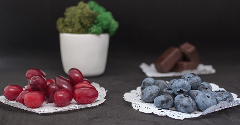
Misleading nutrition claims mask true sugar levels in baby food
5 Jan 2023
Some baby and toddler food and drink products, sweetened with fruit concentrate, contain up to four teaspoons of sugar per serving yet are marketed as having ‘no added sugar’, according to a survey by Action on Sugar.
Read more
Asian beverage brands deal with rising costs
4 Jan 2023
Decreasing bottle sizes or increasing prices? Asian beverage brands are finding “creative approaches” to manage rising costs, according to industry analysts.
Read more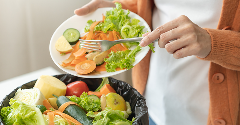
Preserving the freshness of food to fight waste
3 Jan 2023
Several companies are producing products that absorb ethylene, the hormone that causes food to ripen, in attempt to reduce food waste.
Read more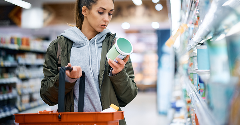
Value-seeking US consumers cut back on food spending
2 Jan 2023
Cheaper items, smaller sizes, and shorter grocery lists: inflationary effects coupled with a global long-term recession are set to continue shaping food spending habits, according to a recent Rabobank report.
Read more
Opportunities grow for lower-caffeine coffee
23 Dec 2022
Many consumers want the mental focus of caffeine without the jitters, prompting a wave of product development such as “half caffeine” ground coffee or ready-to-drink (RTD) cold brew blended with relaxing botanicals.
Read more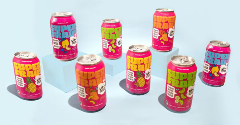
Superfrau upcycles liquid whey for energy drinks
22 Dec 2022
US company Superfrau turns surplus whey into sustainable, upcycled-certified dairy products for the recovery drinks market.
Read more
Malaysian brand Nanka brings jackfruit range to Europe
21 Dec 2022
Malaysian brand Nanka is expanding to new Asian and European markets with its fast and ready-to-eat plant-based products based on jackfruit.
Read more
Is the UK on target to meet its 2025 Plastics Pact?
20 Dec 2022
Major food industry players, including Arla, Kerry, PepsiCo and TerraCycle, have signed the UK’s voluntary Plastic Pact to reduce plastic from the supply chain – but are they on track to meet their targets?
Read more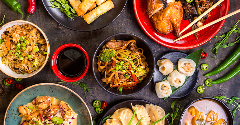
Chinese food brand wants to give customers ‘the full experience’
16 Dec 2022
Food brand Xiao Chi Jie is revamping Chinese cuisine for the modern American consumer. The Washington-based company sells regional Chinese specialties like soup dumplings, noodle kits, and barbeque skewers direct-to-consumer in the US.
Read more